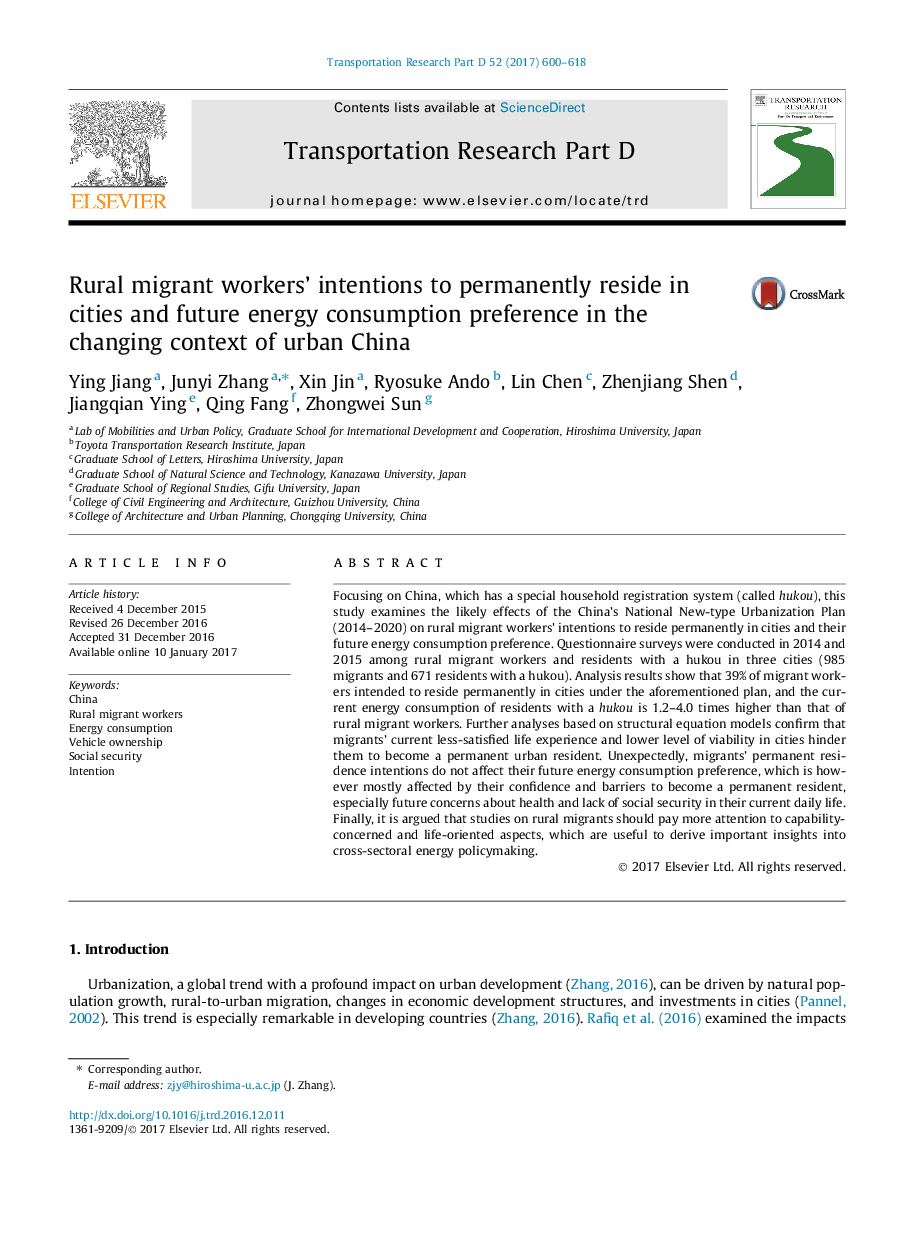| Article ID | Journal | Published Year | Pages | File Type |
|---|---|---|---|---|
| 5119292 | Transportation Research Part D: Transport and Environment | 2017 | 19 Pages |
â¢Rural migrant workers in China are targeted.â¢Migration and energy consumption are jointed analyzed.â¢Permanent residence intention does not affect future energy consumption preference.â¢Health and social security concerns affect future energy consumption preference.â¢The role of vehicle ownership in future energy consumption is low.
Focusing on China, which has a special household registration system (called hukou), this study examines the likely effects of the China's National New-type Urbanization Plan (2014-2020) on rural migrant workers' intentions to reside permanently in cities and their future energy consumption preference. Questionnaire surveys were conducted in 2014 and 2015 among rural migrant workers and residents with a hukou in three cities (985 migrants and 671 residents with a hukou). Analysis results show that 39% of migrant workers intended to reside permanently in cities under the aforementioned plan, and the current energy consumption of residents with a hukou is 1.2-4.0 times higher than that of rural migrant workers. Further analyses based on structural equation models confirm that migrants' current less-satisfied life experience and lower level of viability in cities hinder them to become a permanent urban resident. Unexpectedly, migrants' permanent residence intentions do not affect their future energy consumption preference, which is however mostly affected by their confidence and barriers to become a permanent resident, especially future concerns about health and lack of social security in their current daily life. Finally, it is argued that studies on rural migrants should pay more attention to capability-concerned and life-oriented aspects, which are useful to derive important insights into cross-sectoral energy policymaking.
